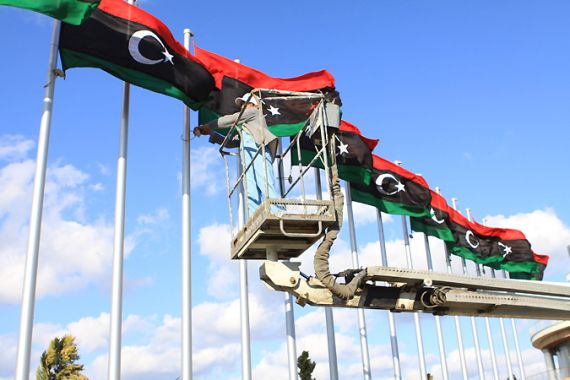Benghazi marks first anniversary of protests
A year on from the first protest of the uprising that toppled Gaddafi, Libyans are hopeful but frustrated with NTC.

Residents of Benghazi, the stronghold of the uprising that toppled the Libyan leader Muammar Gaddafi, remain sceptical that change is coming soon, as they mark the first anniversary of the February 17 revolution.
A year after the uprising began, Libyans are rejoicing in their newfound freedom following more than 40 years of autocratic rule.
The city was dotted on Wednesday with machinegun-mounted pickup vehicles, indicating tightened security measures.
Just a few days ago, a Gaddafi son, al-Saadi, who fled Libya to Niger, claimed that he would lead an imminent uprising everywhere in the country.
As it tries to build a democratic state, the ruling National Transitional Council (NTC) is struggling to impose its authority on a country awash with weapons and to form a functioning national police force and army.
Al Jazeera’s Hoda Abdel Hamid reported from Benghazi that the celebrations were marked by “a lot of excitement, mixed with some protest”.
“There’s a concern that the NTC is not being transparent enough,” she said. “There is a feeling among some that the revolution is sliding out of their hands.”
Checkpoints were scattered around Benghazi in an attempt to control any planned bomb attacks during the celebration of the anniversary.
Unprecedented freedoms
Hassan El-Kekli, a 35-year-old jewellery shopkeeper, used to be careful what he said on the phone to his family and friends.
Any criticism of Gaddafi’s regime was off-limits for fear security officials listening in could show up at his home and arrest him.
| Libyans rebuild their lives along the vital coastal road where much of the fighting took place [Al Jazeera] |
“Before we couldn’t say anything, we were frightened,” El-Kekli said. “Now I can talk about anything.”
Life for ordinary people has improved since the eight-month NATO- backed campaign against Gaddafi and the subsequent months of chaos.
However, security and political woes abound in the run-up to the country’s first free elections in June.
Protesters regularly take to the streets to voice their anger on a wide range of issues, from calling for payment for overdue wages to the removal of state-owned company managers to championing women’s rights.
The change is dramatic.
Under Gaddafi’s police state, tones were hushed, even at home.
“It’s just like Speakers’ Corner in London now,” a 62-year-old Tripoli street vendor called Ibrahim said.
“People finally can speak out. But is anybody listening?”